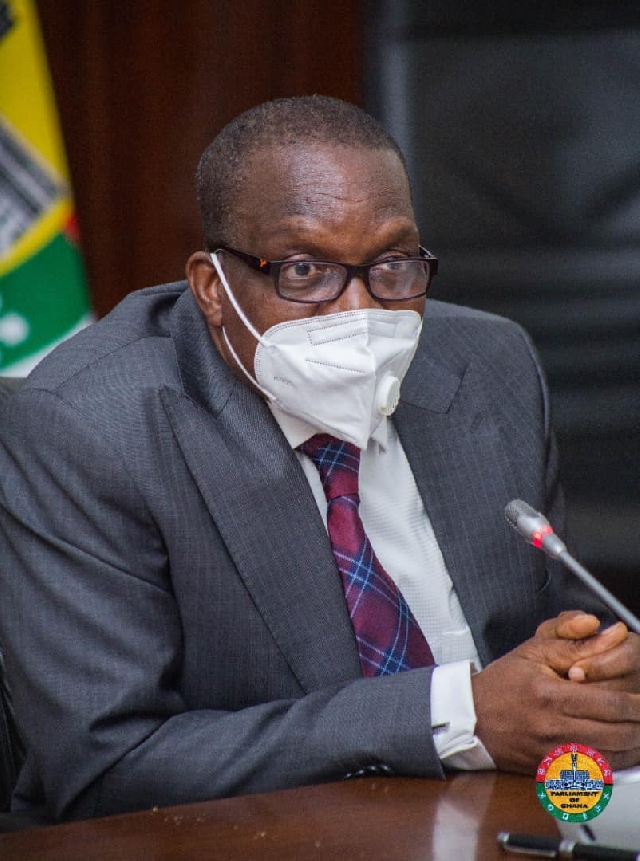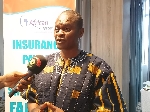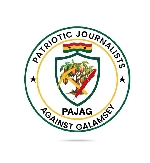Let’s use technology to manage conflict, build peace – Bagbin to ECOWAS parliament
 Alban Bagbin - Speaker of Parliament
Alban Bagbin - Speaker of Parliament
Ghana's Speaker of Parliament, Mr Alban Bagbin, has urged West African countries to embrace and adopt Information Communication Technology (ICT), as it offers new opportunities to better-manage conflicts and build peace, especially at the local levels.
Mr Bagbin said since most conflicts on the continent are a result of election disputes, the adoption of ICT will promote inclusivity and enhance the integrity of electoral processes.
He said Ghana, for instance, introduced the Biometric Verification Devices, used to capture the biometric details of the electorate to reduce multiple registration and voting.
Beyond assisting in conflict prevention, Mr Bagbin noted that ICT also provides avenues for alternative discourse or community engagement that promotes peace and fosters non-violent attitudes and behaviours.
He noted that it is encouraging that despite the tensions and violence that characterised the conduct of elections in some countries, electoral candidates who are dissatisfied with either the process or outcome of elections, are increasingly resorting to the use of the constitutional courts in those countries to resolve electoral conflicts.
“Unfortunately, the judicial system in some countries in the sub-region is slow in the administration of justice. Indeed, the deployment of telecommunication and information technology tools provide the judiciary the opportunity to dispense justice in a more accessible, transparent, efficient, timely, and accountable manner. It is for this reason that the Judiciary in Ghana, for instance, introduced the Electronic Case Management System to expedite court processes,” he added.
While advocating the use of ICT to propel the growth of the sub-region in the areas of peace, development, education, health delivery, agriculture, the Ghanaian Speaker cautioned: “We must, however, bear in mind that whilst technology is extremely good for development, the human touch cannot be replicated.”
Mr Bagbin said these in his address at the meeting of the Joint Committee on Political Affairs, Peace, Security and African Peer Review Mechanism, Legal Affairs and Human Rights, and Telecommunications and Information Technology of the ECOWAS Parliament in Winneba today, Tuesday, 27th July 2021.
Find below details of the Speaker’s speech:
ADDRESS BY RT. HON A.S.K. BAGBIN, SPEAKER OF PARLIAMENT, AT THE MEETING OF THE JOINT COMMITTEE ON POLITICAL AFFAIRS, PEACE, SECURITY AND AFRICAN PEER REVIEW MECHANISM, LEGAL AFFAIRS AND HUMAN RIGHTS, AND TELECOMMUNICATIONS AND INFORMATION TECHNOLOGY OF THE ECOWAS PARLIAMENT ON 27TH JULY 2021 AT WINNEBA
Rt. Hon. Speaker of the ECOWAS Parliament, Dr. Sidie Mohamed Tunis
Neenyi Ghartey VII, President of the Effutu Traditional Council
Hon. Ministers of State
Hon. Members of the ECOWAS Parliament
The Municipal Chief Executive
Distinguished Resource Persons
The Secretary-General and Staff of the ECOWAS Parliament
Invited Guests
Members of the Media
Ladies and gentlemen!
It is for me an honour and a pleasure to be part of the gathering of the ECOWAS Joint Committee on Political Affairs, Peace, Security and Africa Peer Review Mechanism (APRM), Legal Affairs and Human Rights, and Telecommunications and Information Technology. I would like to express my profound gratitude to the Speaker of ECOWAS Parliament, the Rt. Hon Dr. Sidie Mohammed Tunis for this invitation.
The theme for this meeting, which is the role of “Telecommunications and Information Technology (TIT) in Achieving Regional Development, Peace and Security and Human Rights’’ reflects the growing recognition of the importance of Information and Communication Technology (ICT) in dealing with the myriad of problems we face in our Sub-region. In recent times, ICT services have become an indispensable tool in the development of every facet of our society, whether in the Health, Education, Agriculture, or Trade and Industry sectors. Indeed, telecommunication plays an increasingly vital role in enabling the participation and development of people in communities and nations disadvantaged by geography, whether in rural areas of developing nations or in the global society and economy.
As you may all be aware, the Sub-region is confronted with various challenges such as drug trafficking, child trafficking, proliferation of and trafficking in small arms, organised crime, money laundering and terrorism. Cybercrime and the insecurity in the maritime space in the Gulf of Guinea, are issues that require immediate attention. For this reason, countries in the sub-region through data collection and data sharing are strengthening their collaboration and existing co-operation with International Agencies such as (INTERPOL) and the West Africa Police Chiefs Committee (WAPCCO), in order to combat cross border crimes and terrorism.
Hon. Members, the violation of electoral processes in the conduct of elections has also been a major source of conflict leading to violence and tensions in some countries in the sub-region. It is sad to note that these tensions are occasioned by challenges related to non-consensual constitutional reviews, non-compliance with presidential term limits among others. The refusal to accept election results by sections of the society and the abuse of social media to create tensions and divisions are matters of grave concern. These undoubtedly threaten the progress made in achieving participatory democracy and therefore calls for the strengthening of democratic principles and the institution of agreeable measures to improve the election process and ensure a transparent, free, fair and peaceful elections. There is also the need to adopt mechanisms/frameworks for promoting political dialogue and peacebuilding in such countries.
ICT does offer us new opportunities to better manage conflicts and build peace especially at the local levels of our societies. There is the need to promote inclusivity and enhance the integrity of the electoral processes by adopting appropriate technologies in the election management process. Ghana, for instance, introduced the Biometric Verification Devices, used to capture the biometric details of the electorates to reduce multiple registrations and multiple voting.
Beyond assisting in conflict prevention, participatory data collection and processing tools, ICT also provides avenues for alternative discourse or community engagement that promotes peace and fosters non-violent attitudes and behaviours.
Ladies and gentlemen, it is encouraging to note that despite the tensions and the violence that characterise the conduct of elections in some countries, electoral candidates who are dissatisfied with either the process or outcome of elections are increasingly resorting to the use of the constitutional courts in those countries to resolve electoral conflicts. Unfortunately, the judicial system in some countries in the sub-region is slow in the administration of justice. Indeed, the deployment of telecommunication and information technology tools provide the judiciary the opportunity to dispense justice in a more accessible, transparent, efficient, timely, and accountable manner. It is for this reason that the Judiciary in Ghana, for instance, introduced the Electronic Case Management System to expedite court processes.
Mr. Speaker, to achieve regional development through the use of ICT tools, there is the need to address concerns regarding mobile roaming services in the sub-region. According to the World Bank report 2018, there are over 320 million mobile subscribers in the Sub-region. However, the uptake of mobile data in the sub-region remains a serious challenge. It is a fact that most of the ECOWAS nationals who travel to other countries in the sub-region have to pay higher premiums on mobile usage, while others have to change their sim cards to have access to the network available in their new destination. We can only achieve regional development by ensuring that the Regulation on Roaming on Public Mobile Communications Networks in the ECOWAS Space, which was adopted by the Council of Ministers on 16th December 2017 is implemented. This regulation is intended to reduce charges paid by ECOWAS citizens for communication services while roaming within the community.
Rt. Hon. Speaker, it is no gainsaying that telecommunications and information technology is fast becoming a driving force in today’s digital ecosystem by seamlessly connecting communities, businesses and governments. It is, therefore, more imperative now than ever to deploy the use of telecommunications and information technology to advance all sectors of one’s economy and also promote the development of the sub-region.
Technology and ICT are indeed very useful and critical in propelling our sub-region forward, whether in the area of peace, development, education, health delivery, agriculture, etc. We must however bear in mind that whilst technology is extremely good for development, the human touch cannot be replicated. Thus, whilst we strive to inject a lot more technology and ICT into our approaches, we should bear in mind the quote by Lyndon B. Johnson, Former President of the United States of America, which reads “If future generations are to remember us more with gratitude than sorrow, we must achieve more than just the miracles of technology. We must also leave them with a glimpse of the world as it was created, not just as it looked when we got through with it.”
On this note, Hon. Members, distinguished guests, ladies and gentlemen, I declare the meeting open and wish you a fruitful deliberation.
Thank you for your attention.
Trending News

Ghana receives insurance payout for drought-affected farmers
12:36
Rev. Wengam and wife conclude 2025 Apostolic visit in Upper West Region
15:05
Domestic Violence Laws exist, but funding gaps continue to fail survivors — FIDA
15:31
Unsung officers credited with decline in 'landguardism' in Greater Accra
18:15
PAG demands transparency over EOCO’s record GHs337m asset recoveries
12:29
PAJAG commends Lands Ministry for repeal of L.I. 2462
14:50
Gender-Based Violence persists in Ghana as survivors struggle to report abuse – FIDA reveals
15:32
President Mahama's gov't is guided by humanitarian spirit, not gain: Foreign Affairs Minister Ablakwa
15:04
GIPC board chairman calls for Ghana–Turkey collaboration at Global Conference
14:30
Six drivers arrested as Accra Mayor leads evening taskforce against unapproved transport fares
13:35




